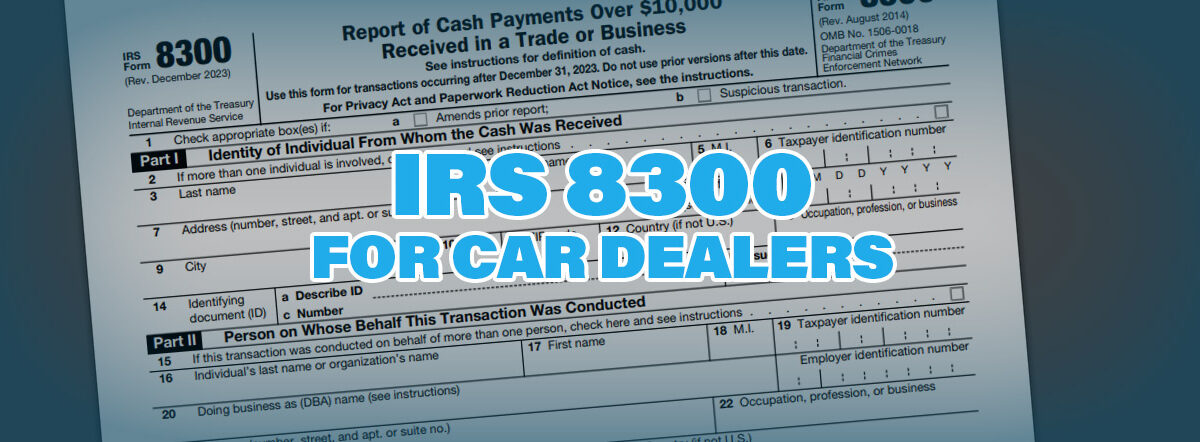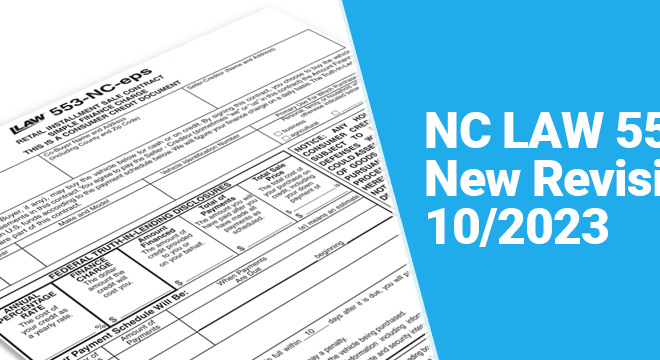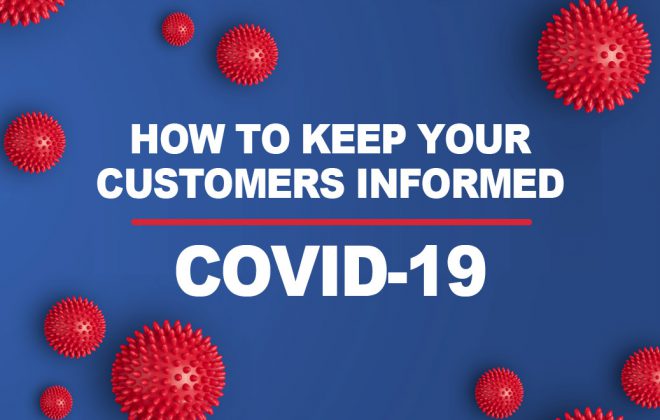IRS 8300 Form For Car Dealers (2024)
Used car dealers receiving over $10,000 in cash in a single or related transactions must report it via IRS Form 8300 (PDF Form Rev. 12/23) within 15 days to combat money laundering.
Related Posts:
— Form 8300 and Reporting Cash Payments of Over $10K (IRS.gov)
— Motor Vehicle Dealership Q&As (IRS.gov)
— Full IRS Form 8300 Reference Guide
But below, we have summarized the main key points you NEED to know!
Always check with the IRS, though, for specific details, questions, and processes.
What You Need to Know as a Car Dealer
Why do Used Car Dealerships need to File an 8300?
Car dealers need to file Form 8300 because it’s a legal requirement to report cash payments over $10,000 received in a single transaction or related transactions. This measure helps in preventing money laundering and ensures financial transparency in significant cash transactions. It’s part of the broader effort by the IRS and FinCEN to monitor and investigate large cash transactions that might be related to illegal activities.
When and How to File
The IRS Form 8300 must be filed within 15 days of the transaction. E-filing is mandatory for businesses filing 10 or more returns annually.
To e-file Form 8300, you’ll need to use the IRS e-file system. This process typically involves registering for an e-services account if you don’t already have one, and then submitting your Form 8300 electronically through the IRS website. Detailed instructions and guidelines for e-filing can be found directly on the IRS website, which will provide step-by-step guidance, including any necessary authentication processes and how to ensure your submission is secure and compliant. Please refer directly to the IRS’s official guidelines for specific details.
Businesses that are not required to file their Forms 8300 electronically that choose to physically mail in their Forms 8300 to the IRS, will send their forms to:
Internal Revenue Service
Detroit Federal Building
P.O. Box 32621
Detroit, MI 48232
Recordkeeping and Penalties
A copy of Form 8300 must be kept for five years. Failure to report or late reporting may result in penalties.
When Should Your Dealership File?
When to File
File Form 8300 for cash payments over $10,000, or multiple payments related to a single transaction that aggregate to more than $10,000.
Payment Methods Requiring Reporting
Report transactions involving physical currency, cashier’s checks, money orders, and traveler’s checks if they total more than $10,000.
When Not to File
No need to file for transactions paid through wire transfers, checks drawn from a bank account, or if the transaction is exempt due to specific criteria related to the payer’s business activity.
Q&A Section
What transactions are considered “cash”?
Cash includes currency, cashier’s checks, bank drafts, traveler’s checks, and money orders with a face value of $10,000 or less.
If you have questions you can always reach out to Carolina Dealer Training and they will be to provide more guidance.
What do you tell your Customer?
Dealers can inform customers about the reporting requirement for cash payments over $10,000, but it’s not mandatory.
Dealers should not help customers structure payments to avoid the need for reporting.
When reporting a suspicious transaction voluntarily, dealers should not notify the customer of the report.
More Q&As From the IRS
Report of Cash Payments Over $10,000 Received in a Trade or Business – Motor Vehicle Dealership Q&AsTags In
Popular Pages
If you like what you see here check out our products and services made for Used Car Dealers
Dealer Software $99 Dealer Websites Social Media Marketing How to Become a Dealer Marketing TipsContact Us
Have a Question or need Technical Support?
Call (704) 307-2030 Our Help Site Remote Support Link Chat On Facebook
About KGI
Over 20 Years in Business.
Based in Apex, NC.
Family-Owned and Operated.
Serving Dealers in the Carolinas.




